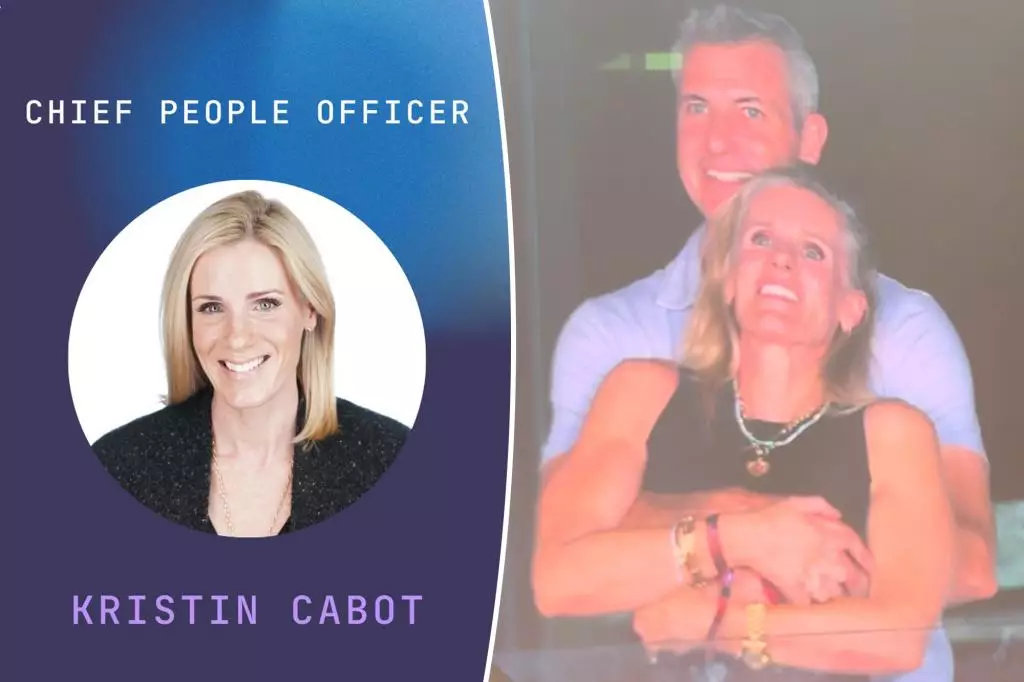In today’s corporate landscape, there’s a persistent glorification of leaders who appear confident, innovative, and influential. Kristin Cabot, the chief people officer of Astronomer, epitomized this archetype with lofty claims of being a “trust-winner” across all organizational levels. Such self-promotion often creates a veneer of exceptional credibility, convincing employees and outsiders alike of their prowess in fostering healthy cultures. Yet, this superficial bravado can mask internal contradictions—namely, the dissonance between personal behavior and professed values. When claims of transparency and inclusivity are undermined by actions like public displays of affection with a married superior, the credibility of leadership is fundamentally challenged.
Leaders who dominate social media bios with words like “fearless,” “innovative,” or “award-winning” create an illusion designed to impress rather than genuinely inspire trust. Leadership isn’t solely about skillful self-promotion but requires authentic consistency, transparency, and accountability. Britney’s case demonstrates a disconnect between image and reality—highlighting how superficial narratives may serve personal interests more than organizational well-being.
Power Dynamics and Ethical Blind Spots
Beyond personal misconduct, the situation reveals a disturbing pattern about power dynamics in corporate settings. Byron’s reputation as a demanding, even intimidating, employer emerges from former employees’ accounts who report threats and lashings out when challenged. Such behavior fosters a climate of fear rather than trust, undermining the very foundation of constructive leadership. When a CEO’s behavior becomes authoritarian, it prompts questions about how organizational culture is shaped—whether by fear or by genuine collaboration.
This double standard becomes more apparent when contrasting Byron’s supposed leadership qualities with reports of his intimidating tendencies. It reflects a common, yet flawed, leadership model where strength is equated with fear-inducing authority rather than empathy and integrity. Organizations that prioritize tactical image over internal culture risk cultivating environments rife with hypocrisy, where internal values clash with outward presentations.
Moreover, the public display of a romantic liaison between Cabot and Byron exposes an additional layer of ethical misconduct. Such personal relationships—seen publicly at a Coldplay concert—raise questions about boundaries and professionalism in executive dynamics. When personal relationships overlap with professional power, the risk of favoritism, conflicts of interest, and reputation damage skyrockets, eroding the organizational fabric from within.
The Impact of Scandal on Corporate Identity
High-profile scandals like this one reveal the fragility of corporate reputations built on flimsy foundations. As the video of Cabot and Byron circulated, it not only compromised their personal images but also cast doubt onto Astronomer’s corporate integrity. In today’s hyper-connected ecosystem, employees, media outlets, and the public scrutinize leadership behaviors more intensely than ever. The incident highlights how personal misconduct can swiftly contaminate organizational legitimacy and morale.
This episode also demonstrates how superficial narratives—such as praise for diversity, innovation, and leadership—are often used as masks to conceal deeper issues. For companies aiming for sustainable growth, genuine ethical conduct and transparent communication should be prioritized over curated images. When scandals break, they expose the disparities between a company’s proclaimed culture and the dissonant realities lurking beneath the surface.
Leadership Reimagined: Moving Towards Authenticity
The case of Kristin Cabot and Andy Byron emphasizes the urgent need to reconsider what true leadership entails. Leaders must transcend superficial charisma and develop a core of authentic integrity, emotional intelligence, and humility. Celebrating diversity, fostering collaboration, and maintaining transparency should be the underlying tenets, not just marketing slogans for recruitment or investor appeal.
Furthermore, organizations should scrutinize their internal cultures and hold leaders accountable for behaviors that undermine trust and integrity. It is not enough to build award-winning workplaces on the back of hollow narratives—real progress demands accountability for actions both in and out of the spotlight. Ethical lapses, especially those involving personal misconduct, threaten to dismantle hard-earned reputations and can have long-lasting repercussions far beyond the individual.
The incident involving Astromer’s leadership serves as a cautionary tale about how easily image can be shattered when the foundational values of honesty, respect, and professionalism are compromised. Moving forward, true leadership must be rooted in authenticity and ethical rigor, rather than superficial charm or manipulative portrayals meant to impress. Only then can organizations cultivate the real trust necessary for enduring success.

